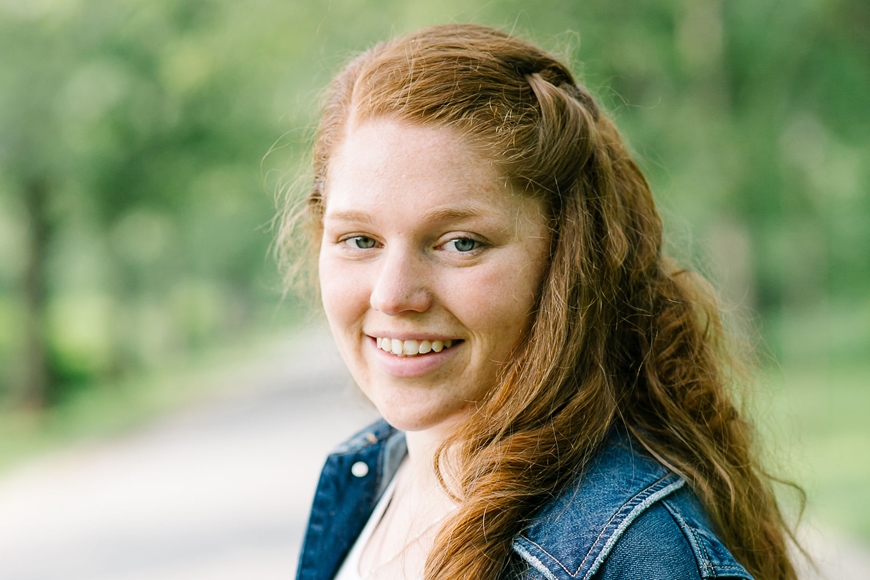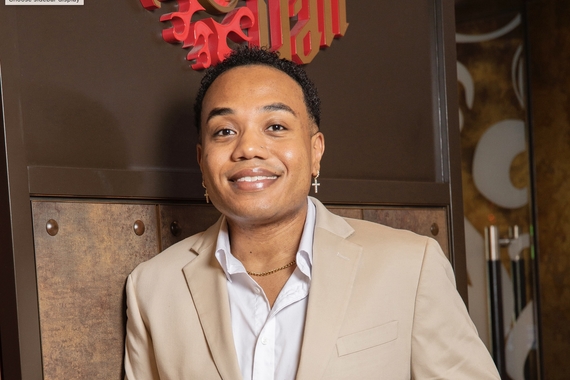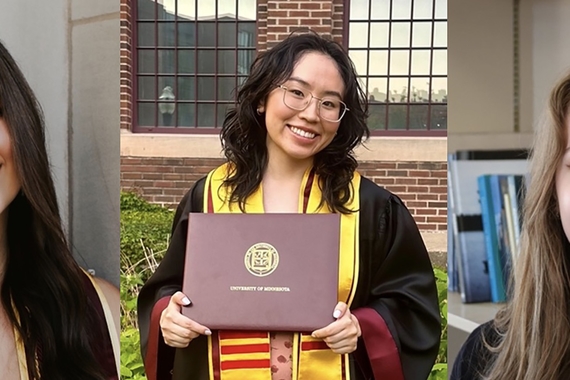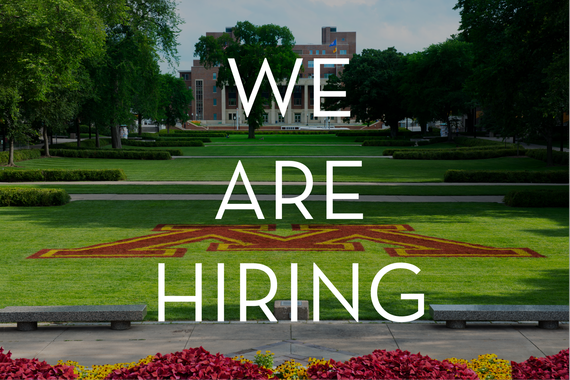Featured PhD Student: Evelyn Dsouza
Where are you from?
I am from New Jersey, and proud! I grew up in the northern part of the state.
Where did you previously attend school? What was your degree in?
I obtained my bachelor’s degree at Drew University, a small liberal arts college in Madison, New Jersey. I double-majored in English and environmental studies and sustainability (ESS), and minored in writing (with an emphasis on creative nonfiction). However, after working in several teaching roles and realizing my own love of writing pedagogy, I made the switch to writing studies for graduate school. I completed my MA degree in our RSTC program in 2018, and I’ve been in our Ph.D. program since then.
Why did you choose Writing Studies at the University of Minnesota?
I had already known about the University of Minnesota for its great reputation overall and its strong profile for interdisciplinary environmental research, but it came to my attention in a special way when it was recommended by a professional organization I’d been involved with during my time in literary studies (ASLE: the Association for the Study of Literature and the Environment). When I learned that the U had its own department of writing studies, I was intrigued even further.
The name of our degree program did puzzle me at first, though; at the time, I was less familiar with technical communication than I was with other categories like writing studies or rhetoric and composition. However, when I learned more about how our department envisions that concept and realized how diverse its application could be, very much including my environmental interests, I began to see my own compatibility and I applied! I’m happy and thankful to be here.
What is your research area?
I study scientific and technical communication with a focus on environmental writing. Relatedly, I ended up completing a minor in natural resource science and management (NRSM) in support of this. I have a prior background in watershed stewardship and environmental education, and so I’ve applied these interests in a dissertation that examines the “rhetorical ecology” of the Hackensack Meadowlands, an urban wetland complex in the New York City metropolitan area.
What do you find most interesting about your research area?
This overall area of inquiry is just so urgent, and it can certainly lead to some sobering realities. At the same time, though, it is fascinating. If we think of writing as a technology, we realize that it plays just as significant a part in environmental change as do our other technologies. In so many ways, after all, text mediates our relationships not just with each other, but with our more-than-human world at large. I’m drawn to this research area because I care about how we exercise these tools in this regard. Just as we hope to “green” gray infrastructure, I’m compelled by questions of how we might “green” gray literature, too, so to speak! And how we might do so justly, equitably, and sustainably.
Would you tell us about a project or course that was particularly meaningful to your professional development?
I recently had the opportunity to intern as a technical editor for the Meadowlands Environmental Research Institute, the scientific arm of the zoning and planning agency for the Hackensack Meadowlands (which also happens to be the site of my dissertation’s focus). Interning is not a traditional part of the Ph.D. path, but I would sincerely recommend it to others if they find themselves with the time and space to do something like that! The experience gave me an added sense of clarity about what I’m seeking in my own career and additional perspectives that enrich my own teaching and research.
What class are you teaching and what is your favorite thing about teaching it?
Right now, I’m teaching 3562W (Technical and Professional Writing). I love it! The students tend to represent majors across the university. They also tend to have an increasingly clear understanding of their own goals, and the questions and concepts that intrigue them in their fields. I am so thankful for all that I learn from my students, which is my favorite thing about teaching this class! As a reader of their texts, I love exploring new ideas in fields I have never studied before. And I have the privilege of accompanying those writers as they learn and practice their own craft. I feel honored to work alongside student writers as they achieve their personal writing goals and bring their ideas to life in a variety of communication modes.
What research/teaching projects are you planning for the future?
I’m about to finalize my revisions on a chapter for the upcoming edited collection Global Rhetorics of Science, so that’s in my near future. Otherwise, I look forward to slowly sharing my dissertation with more audiences, other than my excellent advisors.
In my teaching, I recently revised our technical description assignment to better reflect the insights I gained from my dissertation research, so that has been a neat way that my scholarly and teacherly selves have connected. For as long as I continue to teach writing, I will strive to keep improving my own knowledge and making sure that the class feels up-to-date, relevant, and engaging. I’m excited to see what else my future might hold!
What are your interests/hobbies outside of academia?
I love forest and watershed ecology, so I have fun IDing the trees in my area, looking for benthic macroinvertebrates if I pass by a river (a favorite pastime from my old AmeriCorps days)... and just in general going for walks outdoors! I also love horses. I volunteer for a nonprofit organization called Hope’s Promise, which provides therapeutic horseback riding and visits with therapy horses. Finally, I love spending time with my husband and my family.
What advice would you give to someone considering pursuing their MA or PhD with the Department of Writing Studies?
There’s so much to do, and so many different options to explore, both within our own department and throughout the university. It can be overwhelming! I would say that it’s good to keep track of your engagement and the things you do. There’s a lot to take in, and it’ll be helpful to have a reference, especially when it comes time to update your CV along the way and such.
I would also advise other grad students to see the intrinsic value in what we’re doing, too, though. Yes, we come into this program with professional goals and certain outcomes we hope to achieve—no doubt! However, in my own determination to meet my own goals, I’m not sure if I stopped often enough to “smell the roses.” To truly notice my life as a grad student, and to give thanks! To let things unfold and to try to be, dare I say, spontaneous! This path is not easy, and I don’t make light of that in any way. But it’s empowering and important to let ourselves be happy, too. I am trying to make a better effort these days to intentionally enjoy this current status of my life, in the here and now. It helps to have such a supportive community in our department!



